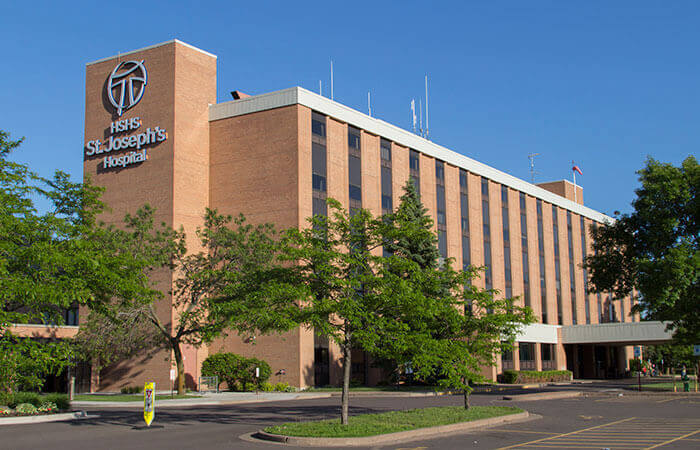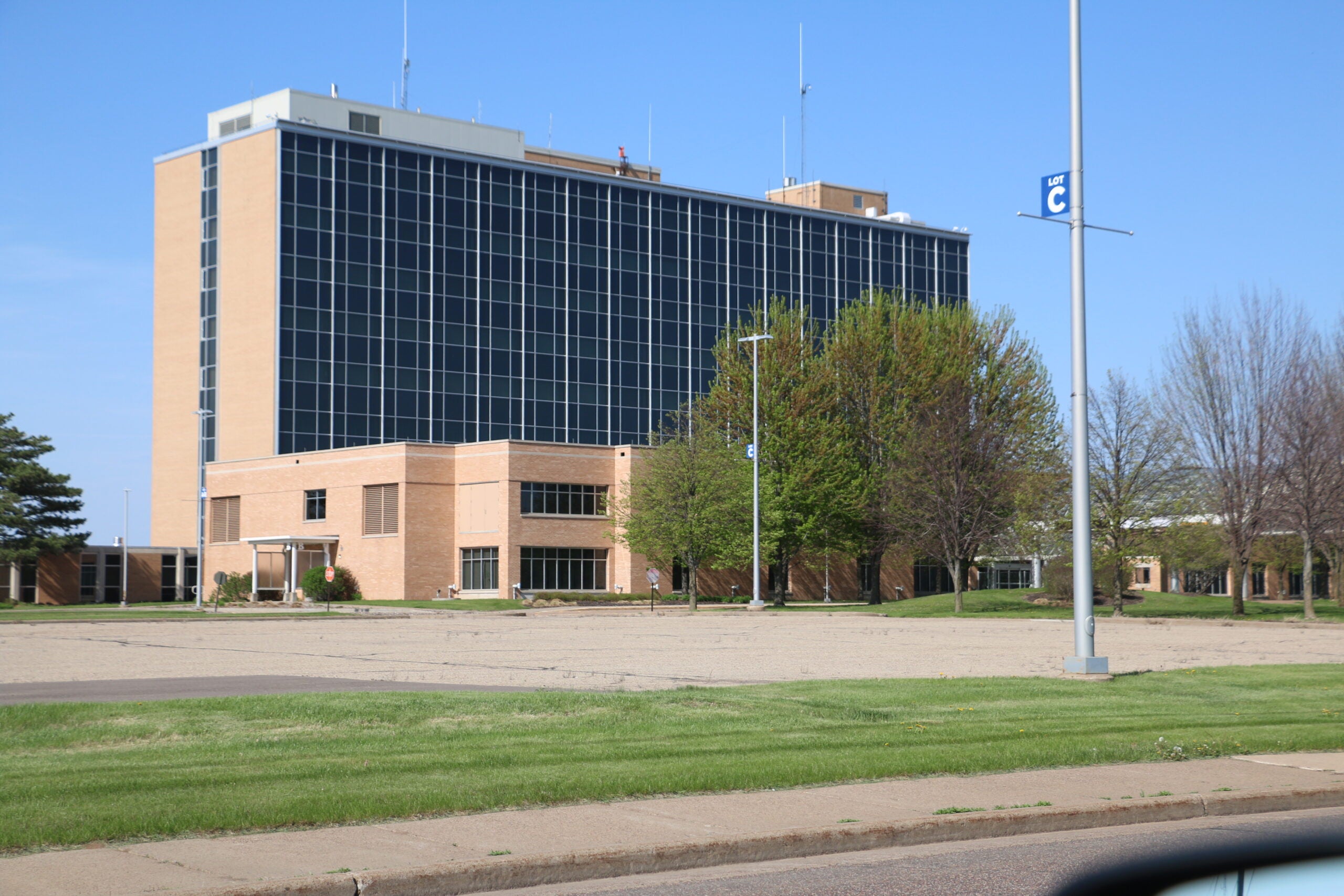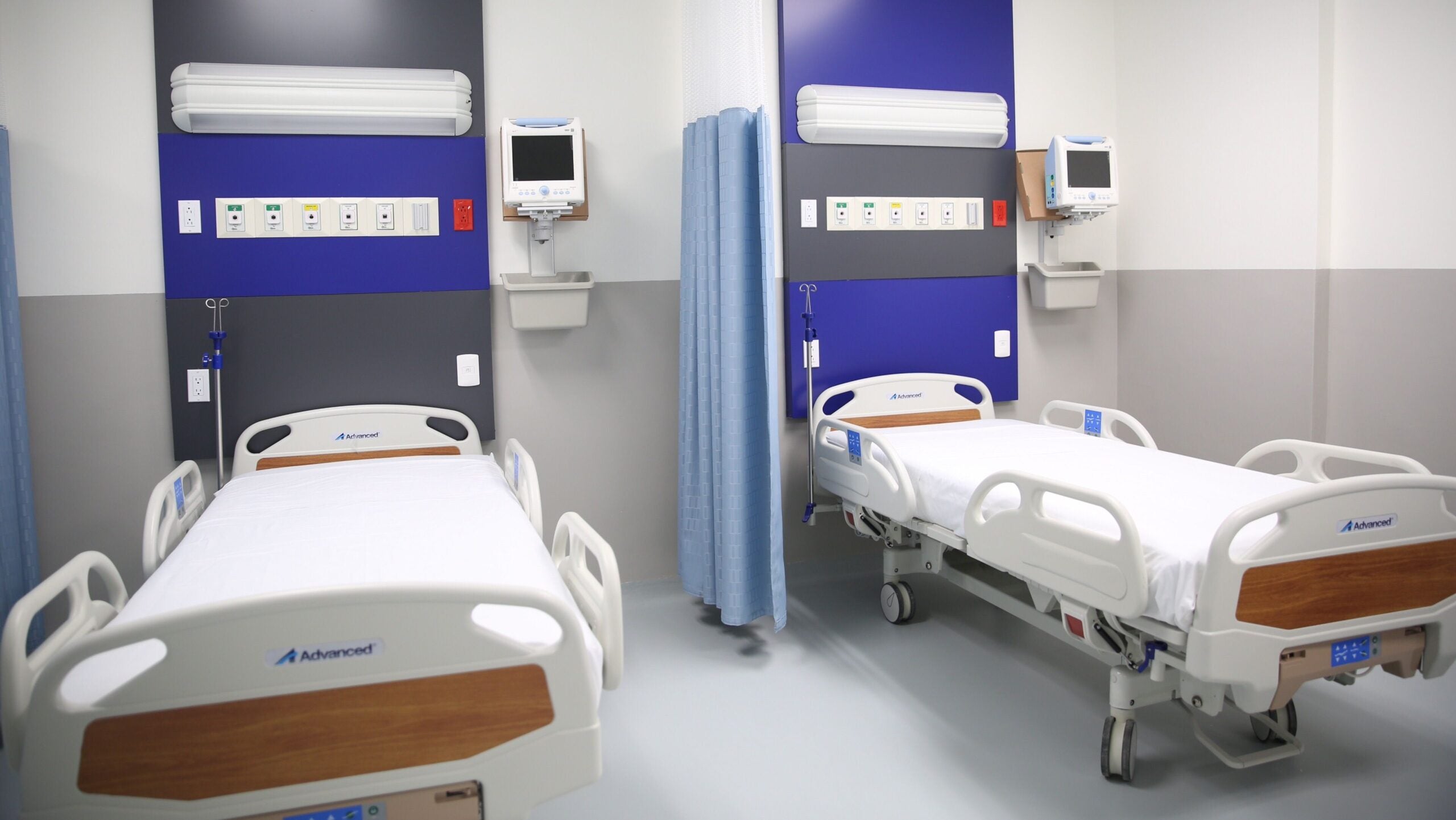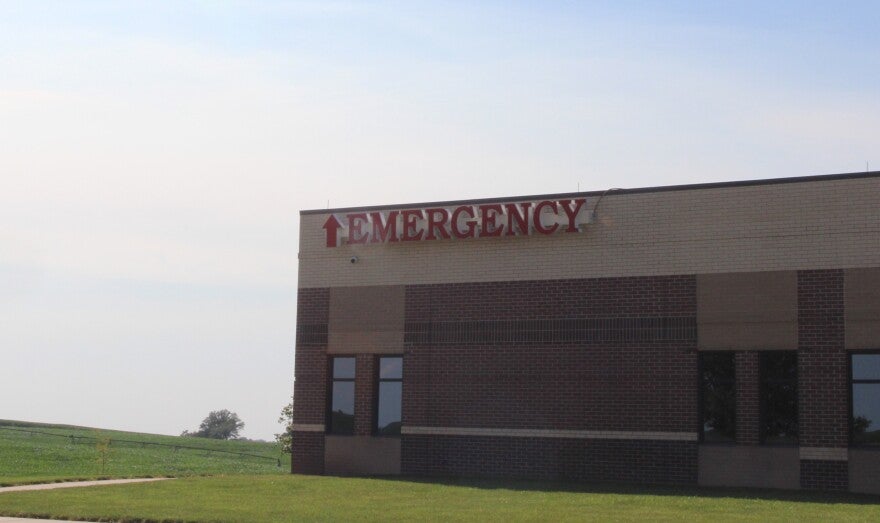A community task force created to respond to the abrupt closure of several Eau Claire area hospitals and clinics has ended its work this week.
The Eau Claire Area Chamber of Commerce formed the recovery task force in late January after Hospital Sisters Health System and Prevea Health announced they would be closing all of their locations in western Wisconsin.
HSHS Sacred Heart Hospital in Eau Claire and HSHS St. Joseph’s Hospital in Chippewa Falls closed on March 22, while most primary and specialty care clinics closed in late April.
News with a little more humanity
WPR’s “Wisconsin Today” newsletter keeps you connected to the state you love without feeling overwhelmed. No paywall. No agenda. No corporate filter.
The task force involved area business leaders, public health leaders and workforce development officials.
David Minor, president & CEO of the Eau Claire Area Chamber, said the group’s initial goal was to help direct the estimated 40,000 patients who were losing their provider or access to a service.
“We wanted to do everything we could to minimize that impact, but then also to do our best to identify new lines of service,” he said.
Now four months later, Minor said the group has been able to identify both needs in the community and possible solutions. He said 14 companies have either expanded services or started providing health care in the area.
But Minor said it will likely be years before the community fully recovers from the closures. He said the task force felt it was time to pause their work, especially because it’s a volunteer effort.
“We just feel it’s best to tell people to take a break. Let’s see where things are at,” he said, “We know long term, things still have to be looked at and have to be discussed.”
Task Force leaders say work still needed to address underlying problems in health care
Jerry Jacobson, president of Northwestern Bank and co-chair of the group, said he also felt the group was able to “soften the blow” of the sudden closures by bringing affected parties together.
“I’m not saying that everything got accomplished, because it did not,” he said. “But I think that we did get the community, with a lot of businesses and concerned citizens, involved and working towards mitigating some of the closure.”
Jacobson said demand for emergency room care still exceeds what area providers are able to handle and new providers have not made up for the loss of substance use treatment provided at the L.E. Phillips Libertas Center in Chippewa Falls. He said the expansions have also not been enough to employ all of the previous HSHS and Prevea workers
“I know many got jobs, but not all have and some had to leave the area,” Jacobson said.
Jacobson said the next steps needed to address health care access in the region have to do with bigger questions around how health care should be funded. He said the task force did not want to be involved in the political debate, but it’s clear that changes are needed in the current health care structure.
“The formulas really are very, very difficult to succeed in the hospital arena,” he said. “We were seeing very, very few hospitals being able to eke out a living on it. I think if you looked at Mayo, Gunderson, Aspirus, some of the big ones here, they’re just getting by. They’re not making tons of money.”
Minor agreed the closures have shined a light on underlying problems in the health care industry, including the large number of patients who are uninsured or have public insurance and rely on the emergency room instead of a primary care provider.
He said addressing these larger problems will take action from both state and federal lawmakers. In the short term, he said the chamber will continue to work with the state Legislature and Gov. Tony Evers’ office to get $15 million in state funding released to support health care expansion, which has been tied up in a political debate since February.
“When you’re dealing with politics, be it Madison or Washington, D.C., it’s not as simple as just saying, ‘Here’s a solution,’” Minor said. “Everybody’s gonna have their point of view on it. In health care, as with any industry, you’ve got multiple sides to this, from the hospitals to the insurance companies to Medicaid and Medicare.”
He hopes the western Wisconsin region can help start the conversation on a local level and be a cautionary tale to other communities. Minor said since the closures, he has contacted other local chamber of commerce leaders to encourage them to talk with their local health care providers.
“We’ve never looked at health care as a business; we’ve looked at it as a resource to help us,” he said. “But it is a business and I think communities, and specifically chambers, we have to be talking with them. We have to be engaged with them to understand what are the obstacles they’re up against.”
Wisconsin Public Radio, © Copyright 2025, Board of Regents of the University of Wisconsin System and Wisconsin Educational Communications Board.





